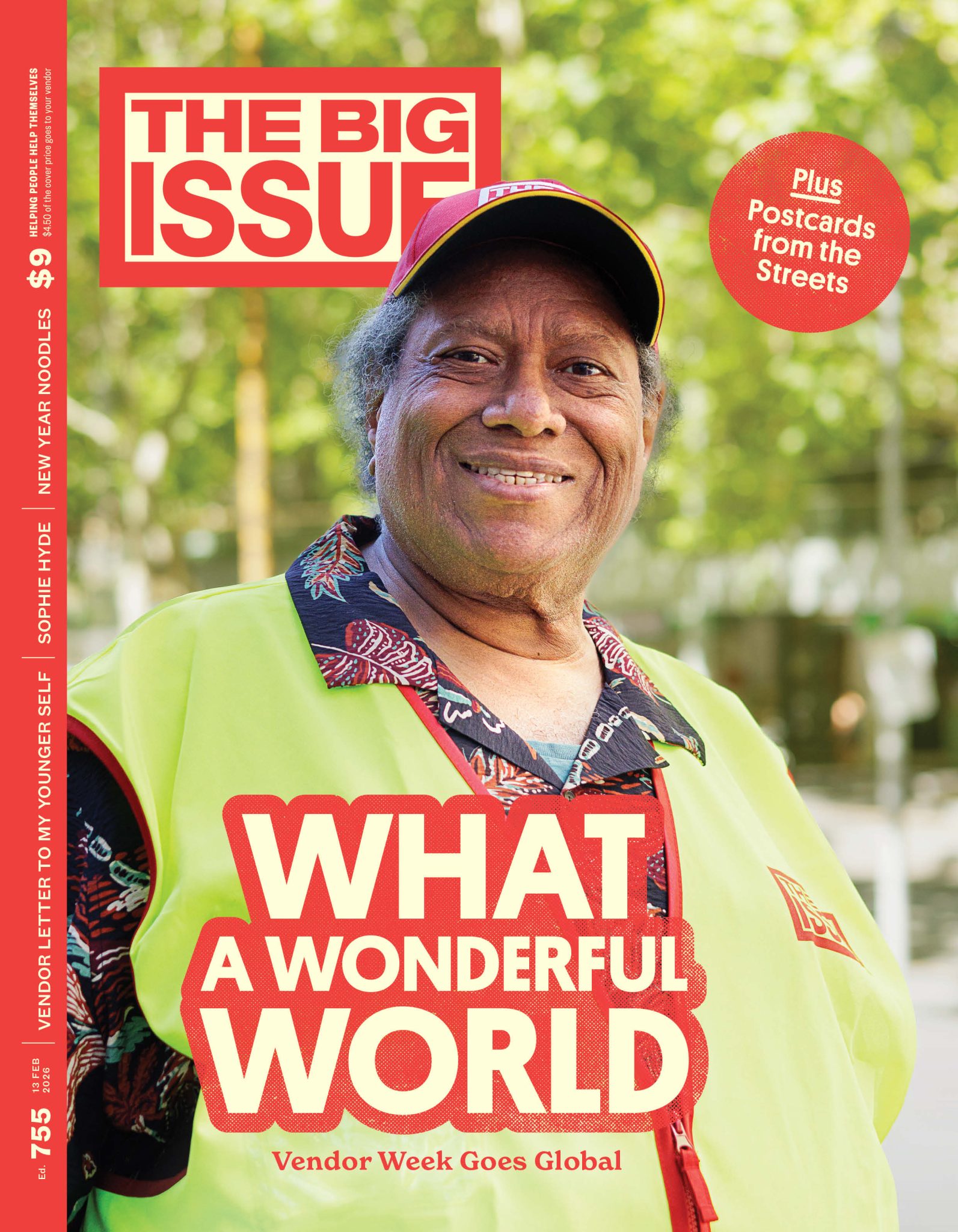Mark Brandi reflects on the loss of his beloved dog and the comfort that her companionship brought to his life.
When we first spotted Millie on a dog rescue website eight years ago, she looked a challenge. She’d had a difficult past, used by a backyard breeder then dumped from a moving car. In the words of the shelter, “She needs a lot of work.”
We’d previously had a staffy in our lives. Her name was Bridie. After 16 years, the pain of saying goodbye had been immense. We were unsure if we were ready to embrace that risk again; whether happiness might be outweighed by inevitable grief.
Weeks turned into months, and Millie still looked out hopefully from her online photos. Eventually, we decided to go see her. “If it doesn’t feel right,” I said, “we don’t have to go ahead with it.”
These were empty words. Once we met her, we knew she’d have to come home.
I was naive about having a new dog in our lives, especially one with a troubled past. I almost lost her on the very first day, carelessly leaving the front gate open. She didn’t know us, couldn’t sense our motivations, and took off down the street.
At obedience classes, a senior among puppies, it became apparent she’d never been walked. She was hypervigilant, fearful of other dogs and open spaces. But with time and patience, her confidence slowly grew.
What was most beautiful, though, was how loving she became. She’d wake me each morning with a lick on the cheek, then turn and lay her body against mine. We’d then go for our daily walk through the nearby gardens. Her back right leg was wonky, having once been broken and never properly healed. Even though it slowed her down, she didn’t let it stop her. Sometimes she’d turn and look at me, eyes bright, as if to say, “Can you believe how wonderful this is?”
It was the poet Josephine Jacobsen who wrote, “To love that which death can touch is a fearful thing.” We knew Millie was getting old. She’d begun to slow down more on her walks, so we took our time. In the last month or two, she took me on some of her favourites: down to Princes Park, along Drummond Street, and through the nearby cemetery. It was as though she was taking me on one last tour.
When she first developed a slight cough, I ignored it. She was eating and exercising normally, and otherwise happy. Then, she began to get short of breath. I took her to the vet, but the X-rays were unclear. Meanwhile, her breathing became more laboured. They recommended a CT scan, which yielded the devastating diagnosis: her lungs were riddled with cancer.
It’s too painful to write about all that followed, but we had our chance to say goodbye. We held her, stroked her coat, and kissed her. We told her how much we loved her, our beautiful girl. I tried to be brave, to make it as easy for her as I could, but it was one of the most painful experiences of my life.
Grief is not some abstract idea. It is a physical and existential pain, felt in the body, the chest. In the days after losing Millie, I’ve never cried so much in my life. In the weeks since, I still struggle to get out of bed. I’ve been unable to take her food from the fridge or empty her water bowl. In her favourite corner, her bed lies empty. I can’t let her go, not yet.
Each morning I watch videos of her snoring, playing with her favourite toys, or wrestling with dogs at the park. Then I walk our favourite route beside the cemetery, and on to Princes Park. I look beside me and see her there, walking along with her wonky leg, eyes bright. “Can you believe how wonderful this is?”
There’s a kind of bewilderment at losing those we love. We ask the universe: how could they be gone? Why does life invite us to love, to feel joy, only to let in this terrible, inevitable pain?
A few days ago, outside my local chemist, a man stood with his two Jack Russells. I gave his dogs a pat, told him about Millie. I explained how I still see her on my walks, imagine her beside me. “Sound a bit crazy, don’t I?”
He shook his head. “She’ll always be with you, man. Always.”
The playwright Aristophanes once wrote, “Your lost friends are not dead, but gone before, advanced a stage or two upon that road which you must travel in the steps they trod.” One day, I will walk on that road. We all will. I can only dream that Millie might be waiting for me. Until then, perhaps a love this big might transcend the corporeal, might find her there.
I will miss you forever, my beautiful girl. And I love you.
By Mark Brandi
Mark Brandi is the author of four novels. His latest, Southern Aurora, is out now.
Published in Ed#698
